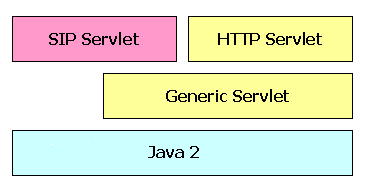What are SIP Servlets?
A servlet is a Java programming language class used to extend the capabilities of servers that host applications accessed via a request-response programming model. A Servlet is a Java class in Java EE that conforms to the Java Servlet application program interface (API), a protocol by which a Java class may respond to requests. They are not tied to a specific client-server protocol, but are most often used with the HTTP protocol. Therefore, the word “Servlet" is often used in the meaning of “HTTP Servlet".
A SIP servlet is a Java programming language server-side component that performs SIP signalling. SIP servlets are managed by a SIP servlet container, which typically are part of a SIP-enabled application server. SIP servlets interact with clients by responding to incoming SIP requests and returning corresponding SIP responses.
Note:
In this document, the term "SIP Servlet" is used to represent the API, and "SIP servlet" is used to represent an application created with the API.
Figure 2-1 Servlet API and SIP Servlet API

SIP Servlets are similar to HTTP Servlets, and HTTP servlet developers can easily adapt to the programming model. The service level defined by both HTTP and SIP Servlets is very similar, allowing for the design of applications that support both HTTP and SIP.